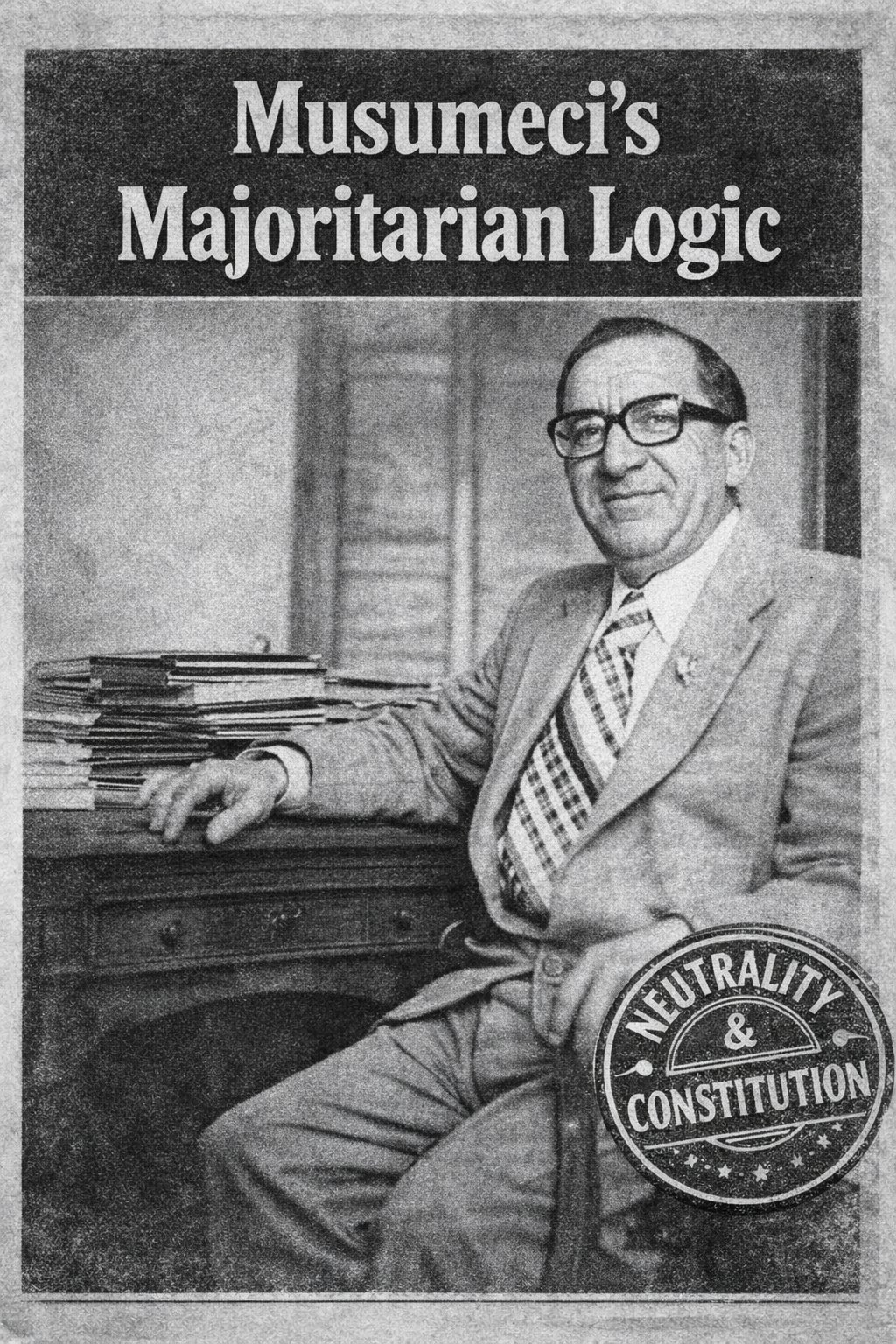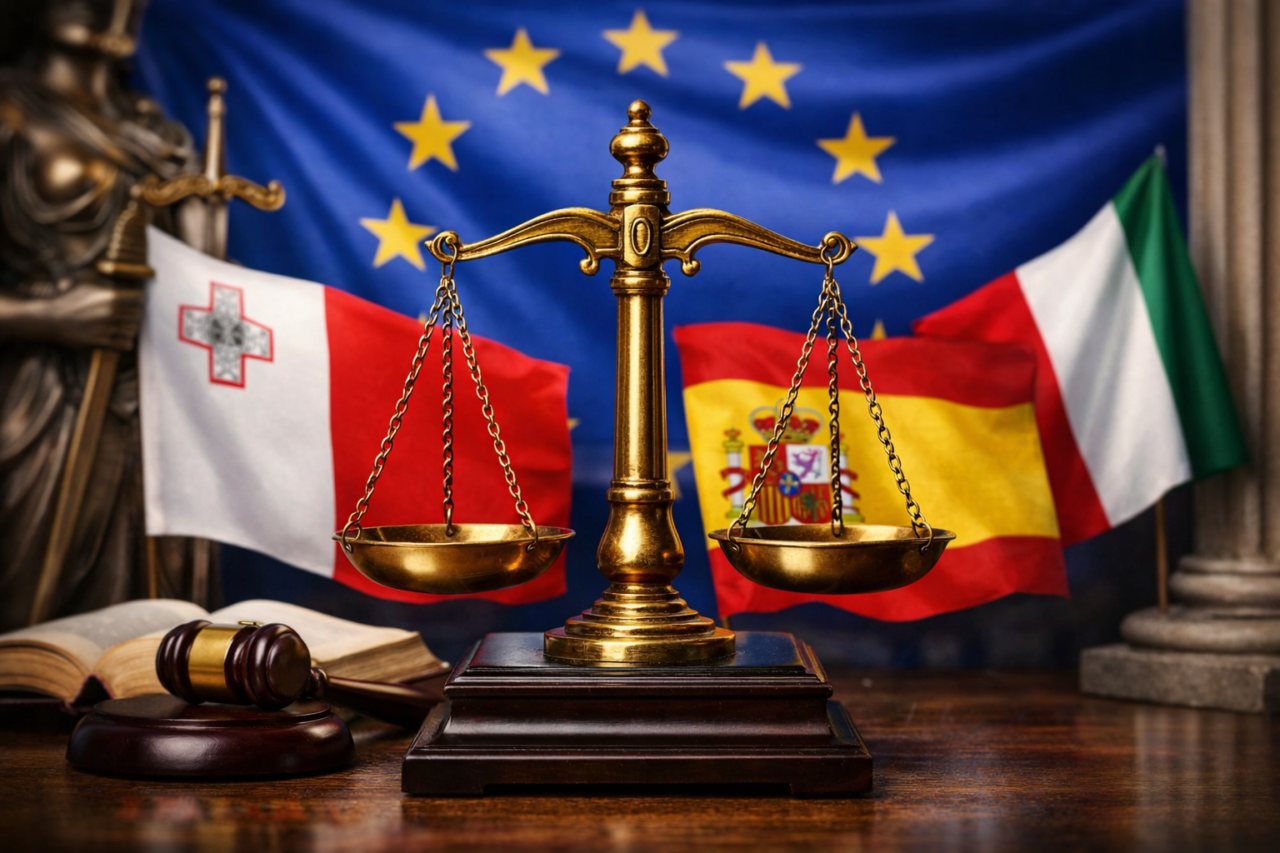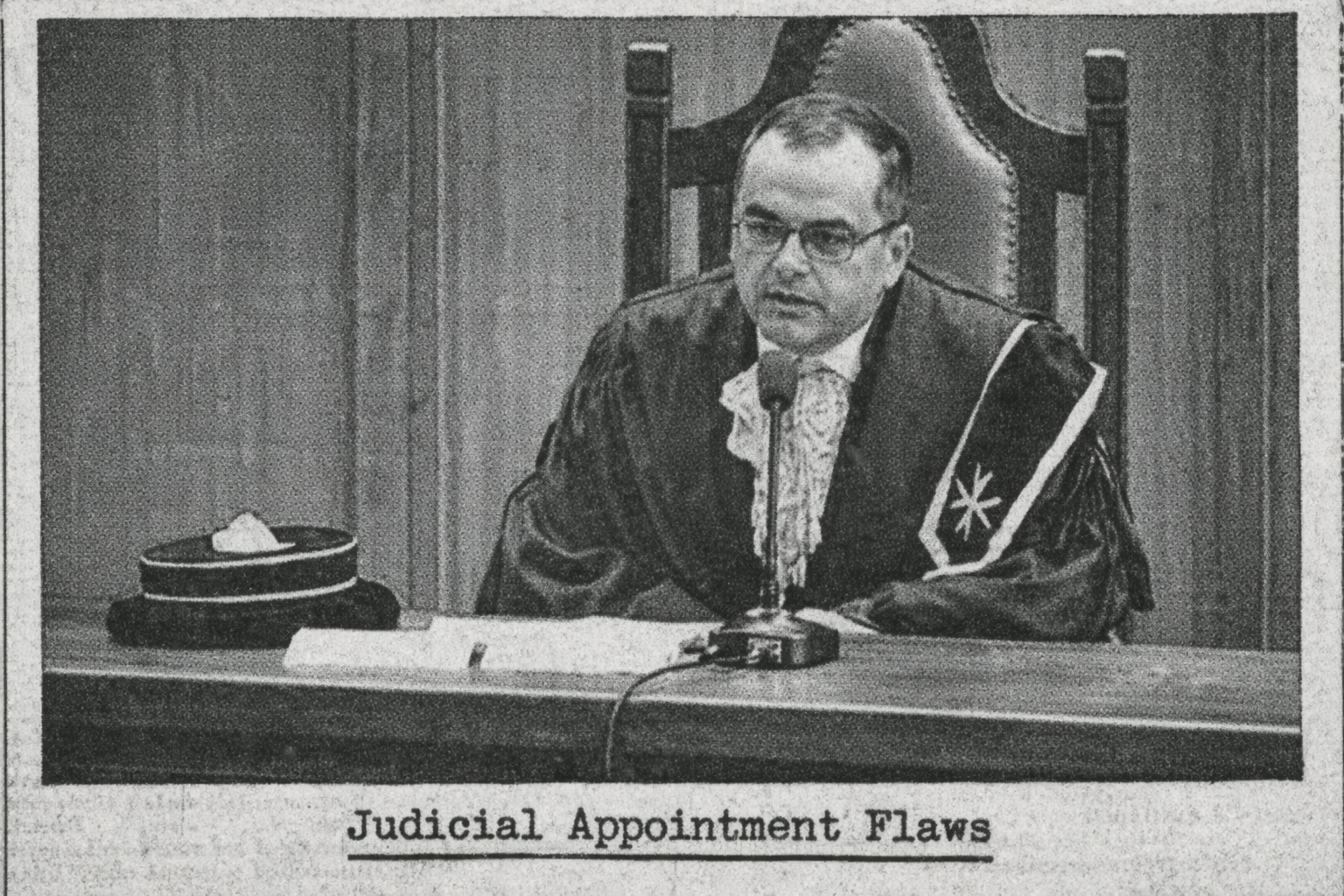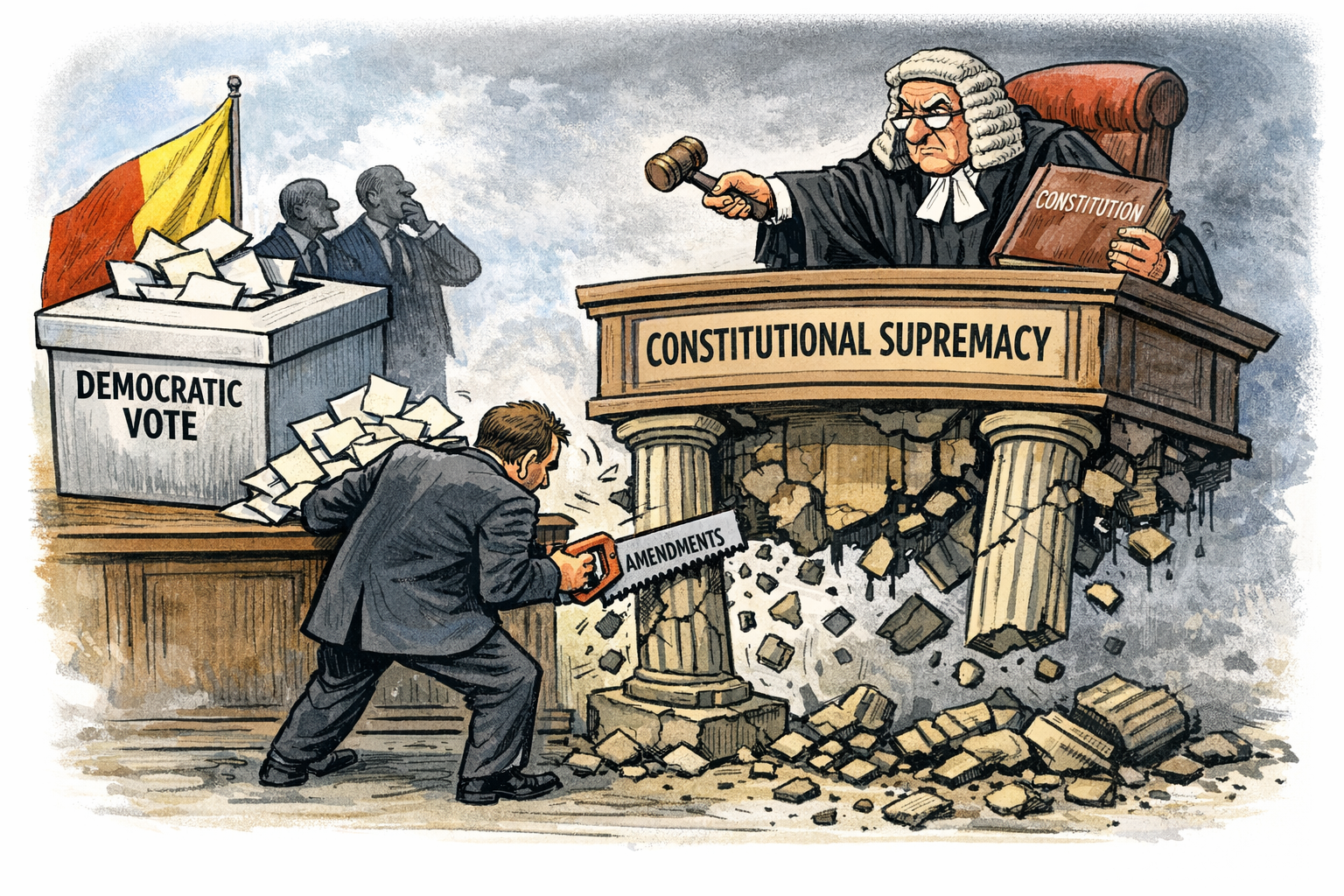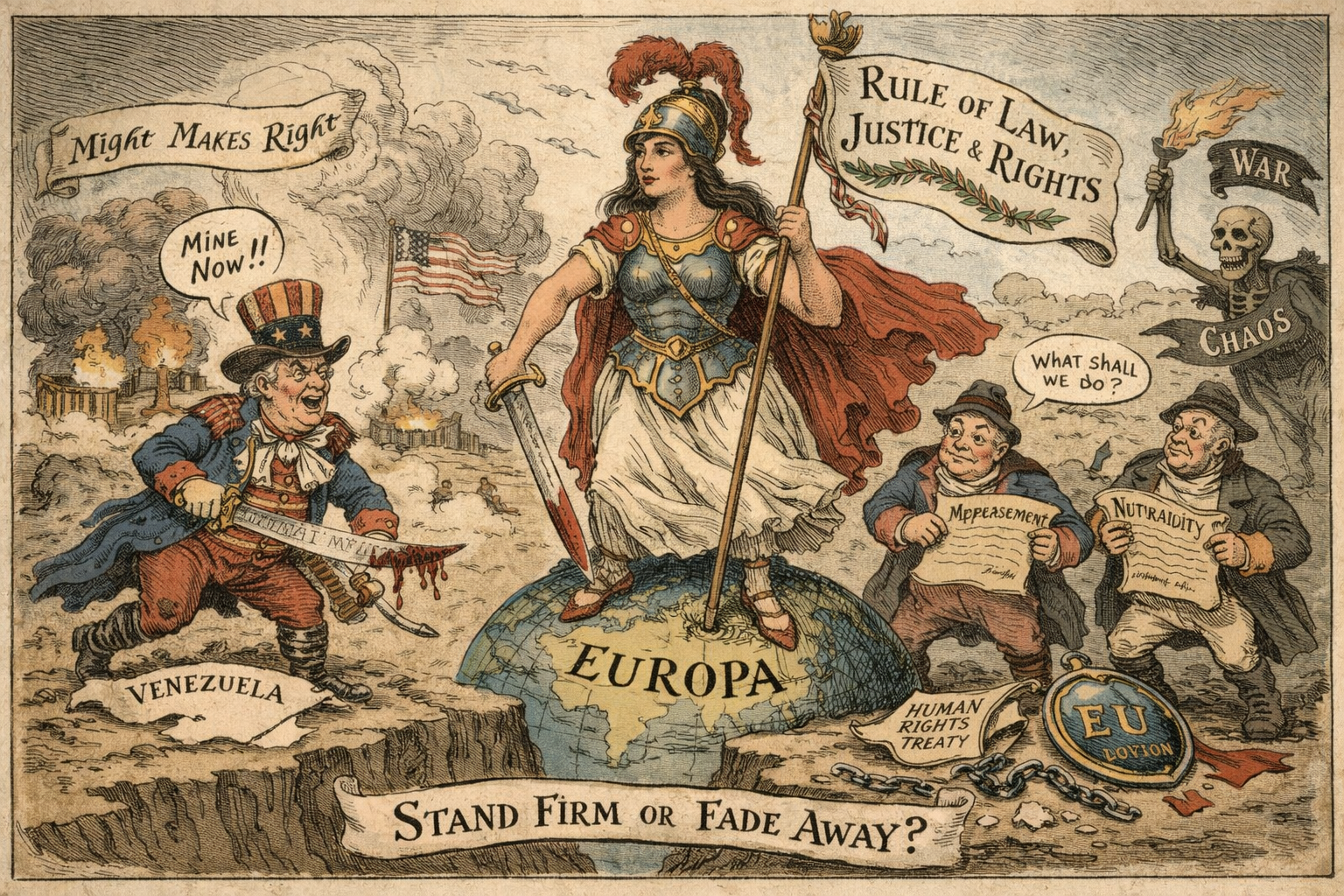Robert Musumeci returns with another “constitutional article” (Malta’s Constitutional Neutrality, TOM 02.03.2026). In this analysis I challenge his treatment of constitutional neutrality and governance, exposing a recurring majoritarian logic in his writing. By conflating democratic outcomes with legal validity, his analysis risks subordinating constitutional supremacy to political arithmetic, reducing entrenched legal commitments to contingent expressions of parliamentary will.
The piece “Malta’s constitutional neutrality” asserts that Malta’s constitutional commitment to neutrality, enshrined in the 1987 amendment to the Constitution, now finds itself strained by the European Union’s evolving foreign and security policy architecture, particularly in the context of the Common Foreign and Security Policy (CFSP). Musumeci’s core claim is that while the veto in CFSP remains a bulwark preserving Malta’s constitutional neutrality, this legal safeguard is increasingly vulnerable to shifting political dynamics, particularly if habitual veto players (such as Orban’s Hungary) cease to exercise their blocking rights.
Implicit in his argument is the view that neutrality is protected less by enduring legal normativity and more by the strategic utility of unanimity in EU decision-making. This framing reflects a broader pattern in the author’s writings wherein democratic outcomes are conflated with legality, an approach most evident in his other Times of Malta article arguing that Malta’s constitutional fate is essentially entrusted to democratic procedure rather than entrenched legal restraint.
At the outset, the description of neutrality as a “domestic constitutional choice” significant in EU foreign policy politics obscures an important legal distinction. The neutrality clause is not merely a political accommodation embedded in constitutional text; it is a normative legal commitment that binds state organs and informs the interpretation of constitutional and international obligations. Article 1(3) of the Constitution explicitly states that “Malta is a neutral state actively pursuing peace…by adhering to a policy of non-alignment and refusing to participate in any military alliance,” a formulation that carries concrete legal implications, such as the prohibition of foreign military bases and the contextual limits on use of Maltese military facilities. Treating this provision as primarily a political artifact weakens its normative legal stature and reduces constitutional law to political expediency.
The focus on the CFSP veto as the principal legal safeguard of neutrality also compresses the constitutional issue into EU political mechanics. Unanimity in CFSP, as Musumeci acknowledges, means that a member state is not bound by an EU foreign policy decision unless it consents to it. However, the existence of a veto or passerelle procedures in EU law is not the same as a guarantee of compatibility with domestic constitutional commitments.
Again, Musumeci’s emphasis on the quantity of Hungarian vetoes and the potential diminution of their political cover conflates political patterns with legal safeguards. A veto is not a constitutional right conferred by domestic law, but an EU treaty mechanism whose application is inherently political rather than juridically determinate. The legal protection for neutrality rests primarily in the text of the Constitution itself and how courts interpret it, not in whether other EU states deploy their vetoes in politically convenient ways.
More fundamentally, the argument assumes that Malta’s capacity to block deeper integration in CFSP automatically protects its constitutional neutrality. This is an over-simplification. EU primary law evolves and CFSP mechanisms may increasingly interface with defence cooperation, even while excluding formal military decisions. Moreover, neutrality in constitutional doctrine is not a static concept; it is subject to legal interpretation that must account for shifting historical context.
Recent scholarly work shows that neutrality, especially in an EU member state, is often interpreted flexibly, acknowledging that neutrality does not preclude all forms of participation in collective security frameworks so long as core commitments like non-alignment in military alliances are preserved. By treating neutrality as a static artefact of Cold War language and as preserved only insofar as other states rein in EU integration, the article fails to engage with the interpretive dimension of constitutional law that recognizes the need to adapt concepts to evolving legal frameworks.
Musumeci’s previous article on constitutional governance (Honesty in constitutional governance, (TOM, 19.01.26)) deepens this weakness by explicitly asserting that the Maltese Constitution entrusts its own fate to democratic procedure and not to “judicial virtue.” It argues that because Maltese constitutional provisions can be amended – even Article 6, the supremacy clause – the constitution does not shelter fundamental values from political winds.
This raises the spectre of majoritarian logic as a substitute for constitutional constraint, a position that undermines the very foundation of constitutional supremacy and the rule of law. It is true that the Maltese Constitution lacks unamendable “eternity clauses,” and that amendments require parliamentary supermajorities. Yet to suggest that constitutional law is subordinate to democratic choice misconstrues the nature of constitutional supremacy and legal constraint.
Constitutions worldwide entrust amendment procedures to democratic processes precisely because the constitution itself is the legal framework that governs how those democratic choices are made and limited. Democratic procedure and legal obligation are not antithetical; they operate in tandem. The notion that constitutional law can be dismissed as merely political choice obscures the fact that constitutional amendment procedures are themselves legal norms that structure democratic action.
This conflation of democratic outcomes with legal validity recurs in the latest article’s suggestion that the political cost of exercising Malta’s veto or recalibrating neutrality may prove decisive. By foregrounding the political cost of legal choice, the argument implicit in both pieces is that political feasibility is the arbiter of constitutional legality. Yet constitutional legality must be discerned through textual interpretation, doctrinal consistency, and legal reasoning independent of transient political calculus.
At a time when the international legal order itself is under strain, and when global politics increasingly rewards power over principle, it is precisely constitutional systems that must resist the reduction of law to arithmetic. If small states internalise the idea that legality bends to political convenience, they mirror a wider erosion in which might supplants right and rules become secondary to strategic leverage. If constitutional commitments are subject primarily to the vicissitudes of political costs, the concept of enforceable legal obligation is hollowed out.If constitutional commitments are subject primarily to the vicissitudes of political costs, the concept of enforceable legal obligation is hollowed out.
Yet again, Musumeci peddles majoritarian logic as a constitutional construct. His legal reasoning suffers from several interrelated weaknesses. It privileges EU political mechanics over constitutional text, collapses legal safeguards into political contingencies, and once again “sells” a constitutional theory that elevates democratic outcomes over normative constraints.
A more robust analysis would ground the discussion of neutrality in constitutional doctrine and interpretive principles, delineating the legal contours of Malta’s neutrality clause and its interaction with EU law, rather than reducing constitutional protection to the presence or absence of political shields like veto patterns. This would align the argument with core principles of constitutionalism and the rule of law, rather than subordinating constitutional rights to political calculation.
related post: Democracy is not a legal alibi
